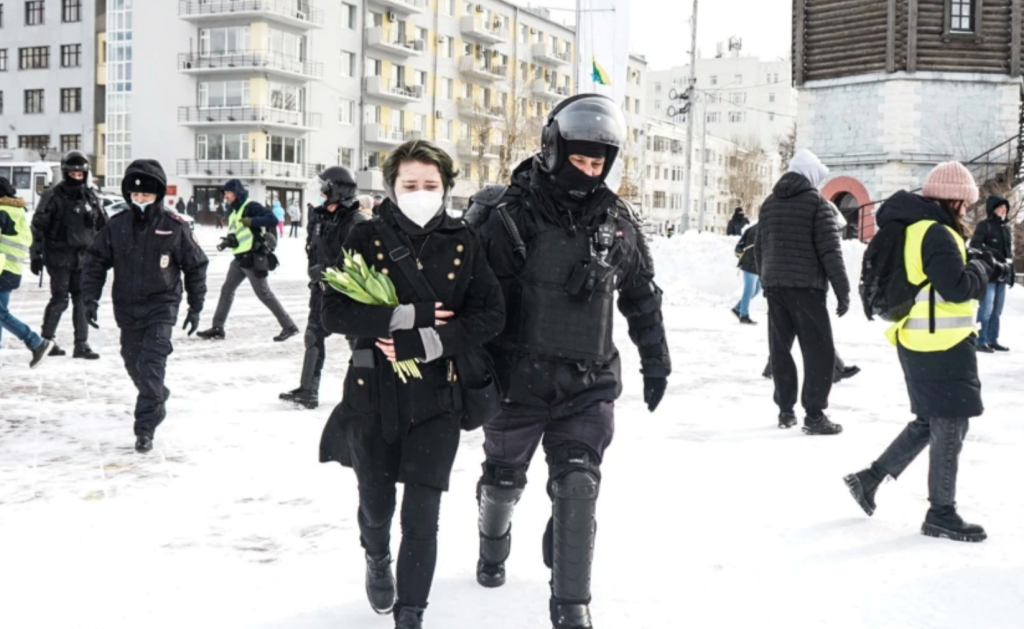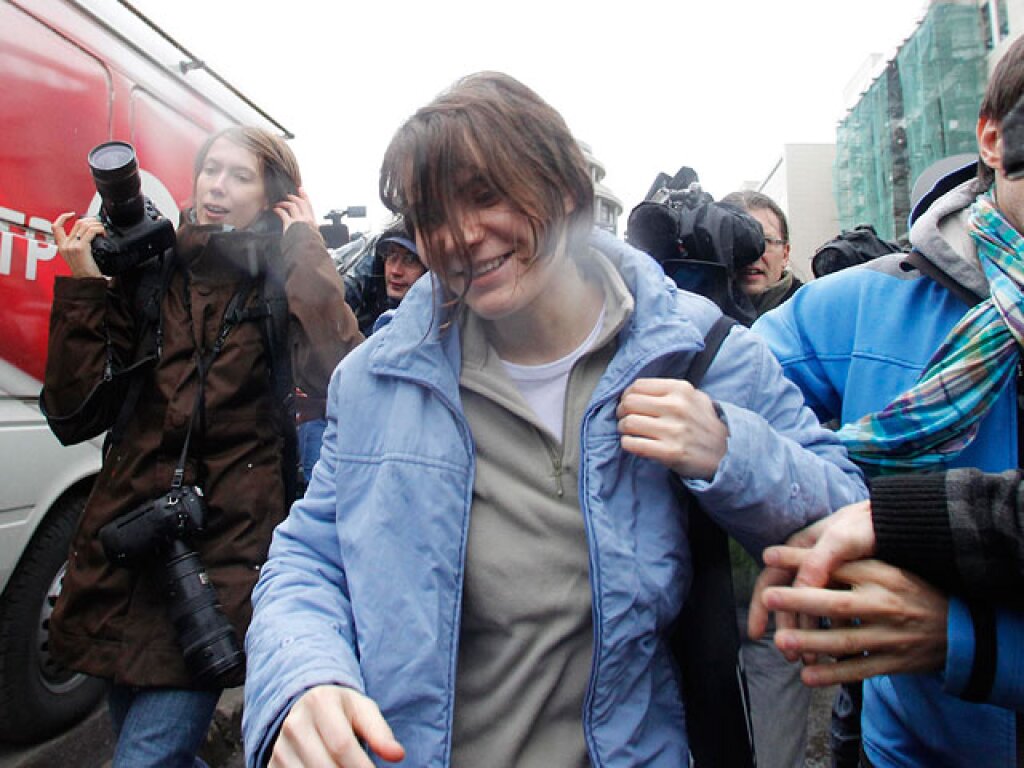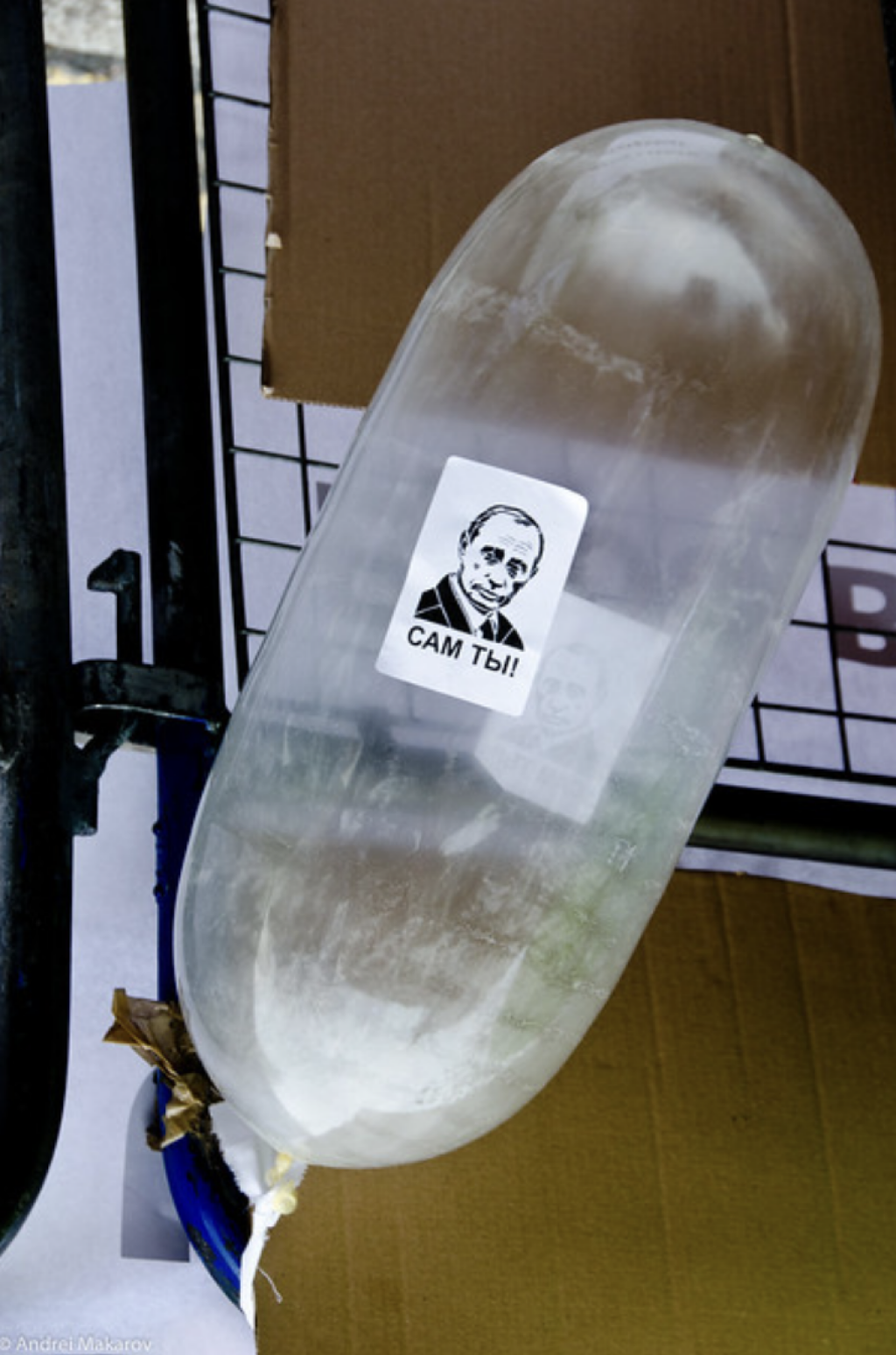We at the Jordan Center stand with all the people of Ukraine, Russia, and the rest of the world who oppose the Russian invasion of Ukraine. See our statement here.
Above: Police arrest a woman protesting in Yekaterinburg on 6 March 2022. Source
Dear members of the NYU community,
No doubt you have been following the terrible news in Ukraine and in Russia over these last few weeks. As a Russian-born citizen and a current PhD student in the Department of Media, Culture, and Communication (NYU Steinhardt), I’m deeply concerned about the wellbeing and security of people in Ukraine, Russia, and Belarus as they face the destructions of war (Ukraine), increasingly tyrannical governments (Russia and Belarus), and current and future economic collapse (Ukraine, Russia and Belarus).
Many scholars in these countries have not remained silent, but they are more at risk every day. In Russia—where I was just days ago—many progressive scientists are openly publishing anti-war and anti-Putin statements on social media and marching in the streets, while artists are organizing anti-war performances despite the threat of arrest. I myself was arrested during a solitary picket with a “No War” sign attached to my backpack in the center of Moscow on Feb. 25; spent around 5 hours in the police department and attended a day in court; and eventually had to pay a fine for an administrative offense so I could leave the country.
It goes without saying that scholars in Ukraine are facing threats to their freedoms and very lives that are even more dire. At the same time, peaceful anti-war action in Russia is becoming ever riskier under a new law passed on March 4, which bans all statements deemed pacifist, as well as any "fake news" about the war, punishable by up to 15 years in prison. The waves of arrests of thousands of people that occurred across the country this weekend make tangible the urgency of the current situation, and the vital need for emergency measures to be taken in the coming days and weeks.
Some of the researchers I’m writing about have managed to escape their countries for the European Union or Central Asia, at least temporarily. Others remain in hiding in their homes, shelters, or continue to march in the streets under threat of prison sentence. Across the region, these scholars require immediate support from the international community—support that NYU is well positioned to provide as a global university with strong ties around the world.
I read President Andrew Hamilton's empathetic letter, sent to members of the university community, and was touched by the solidarity of those who participated in the Vigil for Ukraine last week. In this spirit, I want to suggest yet another way to support scholars working in academic institutions in these countries—scholars with whom we have more in common than the conflicts between our governments might suggest.
Many universities in Europe and the US have started to create or earmark already existing “Scholars-at-risk” positions for researchers currently fleeing Ukraine, Russia, and Belarus. NYU can and should establish similar positions here.
Providing even a few academic positions and visa support to Ukrainian, Russian, and Belurusian scholars across different NYU departments and sites would be an act of true academic and humanitarian solidarity and practical support. It would also mesh with already extant programs at NYU and elsewhere that help secure jobs at North American universities for scholars-at-risk from Afghanistan, Syria, and other conflict zones.
Today, the physical security and academic prosperity of Eastern European scholars are also in the hands of international universities. I truly hope NYU will not remain indifferent to the ongoing humanitarian and academic crisis in this region.



